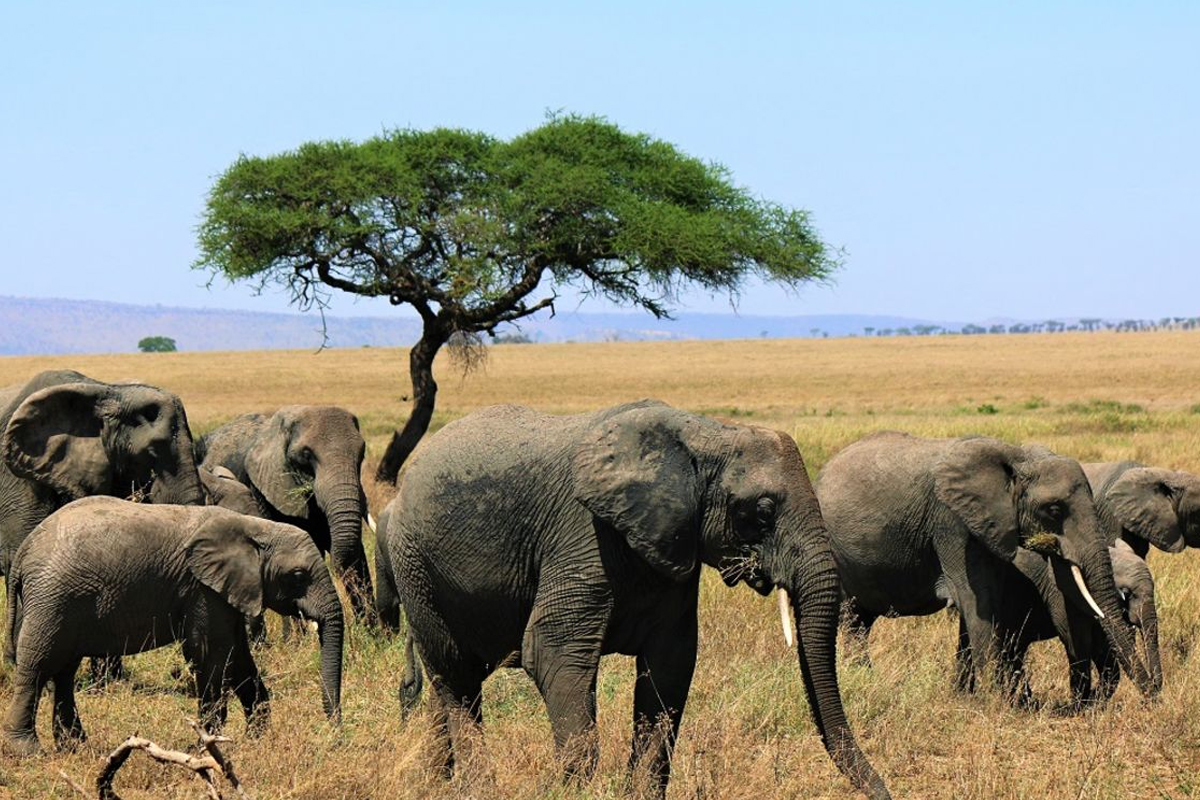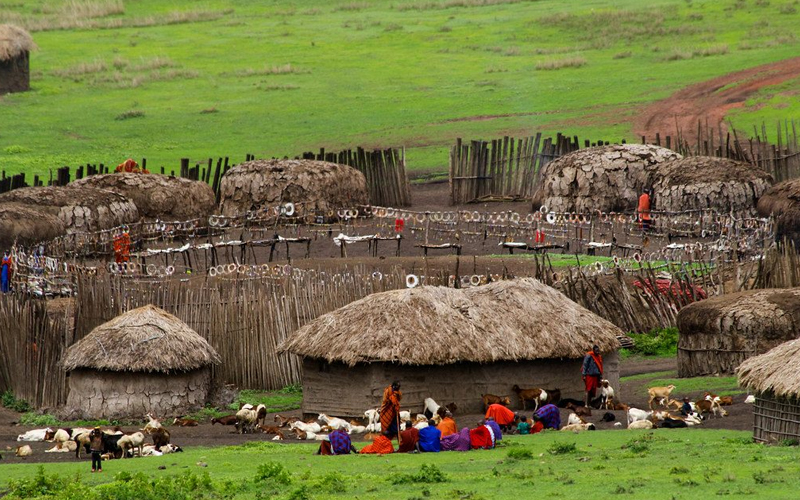Sustainable Travel Destination Tanzania 2024
Tanzania, a land of awe-inspiring landscapes and unparalleled wildlife, is increasingly becoming a beacon for sustainable travel. From its community-driven tourism initiatives to its commitment to conserving biodiversity, this East African nation offers travelers an opportunity to explore responsibly while supporting local communities. Let’s dive into why Tanzania should top your list for sustainable travel in 2024.
What Makes Tanzania a Sustainable Travel Haven?
- Rich Biodiversity: Home to the Serengeti, Ngorongoro Crater, and Mount Kilimanjaro, Tanzania boasts a diverse range of ecosystems. Conservation efforts ensure these habitats remain unspoiled for future generations.
- Community-Centric Tourism: Tanzania’s travel sector actively involves local communities, providing them with opportunities for income while preserving cultural heritage.
- Focus on Low-Impact Tourism: With strict visitor caps in national parks and eco-friendly lodges, Tanzania is dedicated to minimizing tourism’s ecological footprint.
Tanzania’s Sustainable Travel Highlights
- Serengeti National Park’s Eco-Initiatives: The Serengeti, famous for the Great Wildebeest Migration, implements measures to combat poaching and over-tourism. Eco-lodges here use solar power and sustainable materials to blend with the environment.
- Ngorongoro Conservation Area’s Unique Model: Ngorongoro is a UNESCO World Heritage Site where wildlife coexist with indigenous Maasai communities. Visitors contribute to conservation funds that directly benefit both wildlife and people.
- Zanzibar’s Green Tourism Efforts: The idyllic island of Zanzibar is embracing eco-tourism, with resorts adopting renewable energy and waste management systems. Initiatives to protect coral reefs are also a major focus.
- Kilimanjaro’s New Trekking Policies: In 2024, Mount Kilimanjaro introduced stricter regulations to preserve its fragile ecosystem, including waste management protocols and mandatory eco-certifications for trekking operators.
How Tanzania Promotes Responsible Tourism
- Community-Run Lodges and Camps: Eco-lodges like Maasai Wanderings and Olpopongi Maasai Village Camp ensure revenue directly supports local communities, helping fund education and healthcare.
- Conservation-Focused Safaris: Tour operators like Rolux Safaris prioritize low-impact game drives, advocating for smaller groups and longer stays to reduce carbon emissions.
- Wildlife Corridors and Anti-Poaching Measures: Tanzania invests in wildlife corridors connecting national parks, ensuring species can migrate freely. Anti-poaching units, supported by tourism revenue, protect endangered species like the black rhino.
Sustainable Cultural Tourism in Tanzania
- Experiencing Maasai Culture: Visiting Maasai villages offers insight into one of Africa’s oldest cultures. These tours are led by Maasai people, ensuring authenticity and direct economic benefits for the community.
- Coffee and Spice Tours: From the aromatic spice farms of Zanzibar to the coffee plantations around Mount Meru, these tours emphasize organic farming and fair trade practices.
- Handicraft Workshops: Support local artisans by participating in workshops to create beaded jewelry or learn traditional weaving techniques.
Eco-Friendly Accommodation Options
- Green Safari Lodges: Lodges like Asilia Africa and Serengeti Pioneer Camp adopt eco-friendly practices such as using biodegradable toiletries and sourcing local ingredients for meals.
- Zanzibar’s Eco-Resorts: The island’s eco-resorts, such as Fumba Beach Lodge, focus on sustainable architecture and marine conservation projects.
- Tented Camps in Remote Areas: Stay at semi-permanent tented camps that leave no trace, ensuring minimal environmental impact while immersing you in nature.
Best Practices for Sustainable Travelers in Tanzania
- Choose Ethical Tour Operators: Research companies that adhere to sustainability principles, such as using local guides and supporting conservation programs.
- Pack Light and Eco-Friendly Gear: Use biodegradable products, reusable water bottles, and solar chargers to reduce waste.
- Respect Local Cultures and Wildlife: Avoid activities that exploit animals or commodify indigenous cultures. Always follow park rules and maintain a respectful distance from wildlife.
When to Visit Tanzania for Sustainable Travel
- Green Season Travel: Consider traveling during the off-peak green season (March to May) when fewer visitors reduce pressure on parks and accommodations.
- Supporting Local Festivals: Plan your trip around cultural events like the Mwaka Kogwa festival in Zanzibar or the Ngorongoro Maasai Marathon to support community-led initiatives.
Combining Adventure with Conservation
- Volunteer Opportunities: Join conservation projects like turtle monitoring in Zanzibar or anti-poaching initiatives in Selous Game Reserve.
- Educational Safaris: Participate in guided safaris led by conservationists who educate visitors on sustainable practices and wildlife behavior.
- Eco-Trekking Adventures: Explore lesser-known trekking routes, such as the Usambara Mountains, which promote community-based tourism.
Tanzania’s Commitment to a Greener Future
- Investment in Renewable Energy: Many lodges and camps are powered by solar energy, reducing reliance on fossil fuels.
- Marine Conservation Projects: Coral reef restoration and marine protected areas around Zanzibar showcase Tanzania’s commitment to safeguarding its underwater ecosystems.
- Wildlife Relocation Programs: Efforts to reintroduce species like the rhino and African wild dog highlight Tanzania’s dedication to biodiversity.
Tanzania is leading the way in sustainable travel, offering experiences that leave a positive impact on its environment and communities. Whether you’re trekking Kilimanjaro, diving in Zanzibar, or exploring the Serengeti, you can be part of Tanzania’s efforts to promote responsible tourism. Plan your 2024 adventure and make a difference while discovering the magic of this East African gem.
FAQs
- What is sustainable travel?
Sustainable travel involves minimizing environmental impact, supporting local communities, and preserving cultural heritage while exploring a destination. - How can I travel sustainably in Tanzania?
Choose eco-friendly accommodations, support community-led initiatives, and follow park rules to reduce your footprint. - Are safaris in Tanzania eco-friendly?
Many operators in Tanzania prioritize sustainable practices, such as using hybrid vehicles and contributing to conservation projects. - What is the best time to visit Tanzania for sustainable travel?
The green season from March to May is ideal for sustainable travel due to lower tourist numbers and reduced environmental impact. - How does Tanzania support conservation through tourism?
Tourism revenue funds anti-poaching efforts, wildlife relocation programs, and community-based conservation initiatives.
Embark on an Unforgettable Tanzanian Adventure!
Visit our pages for detailed insights on:
- Lake Manyara National Park
- Ngorongoro Crater
- Serengeti National Park
- Tanzania Honeymoon Safari
- Tanzania Luxury Holiday
- Tanzania Travel
- Safari Packing Gear List
Plan your dream safari today by exploring our website!













